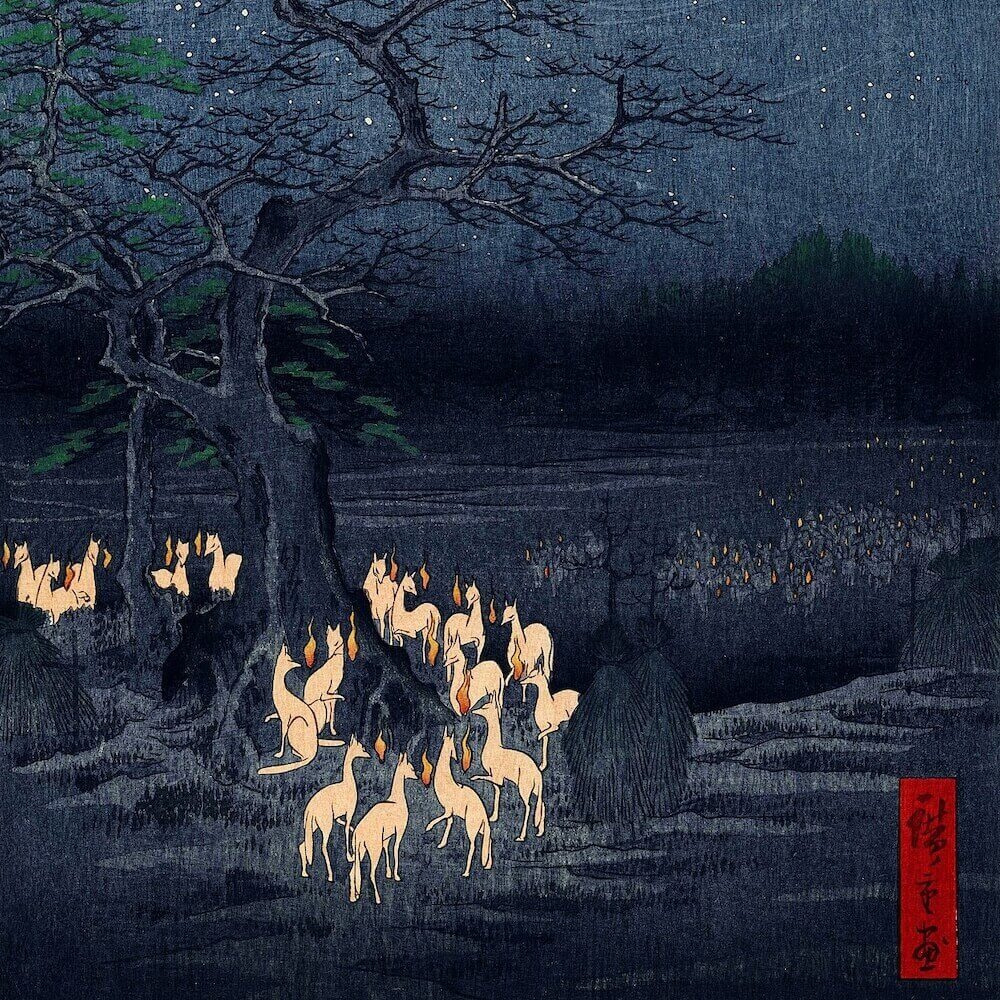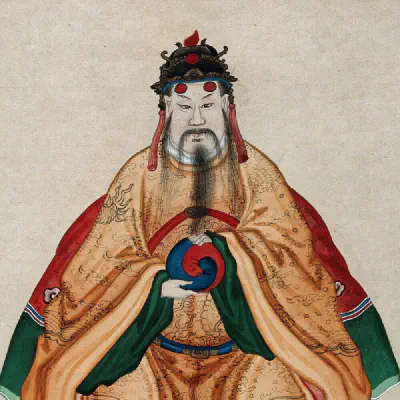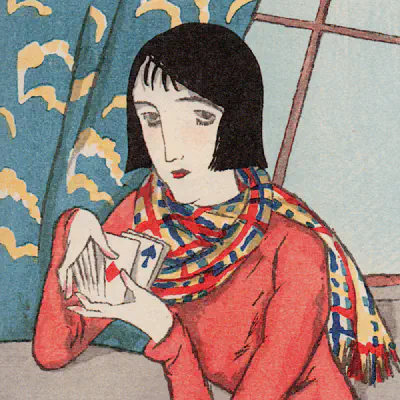I’ve been having fun learning a little Taiwanese lately. And because there are not that many materials around, I’ve been rummaging around online to find some older texts that I can translate. This is language-learning by diving in at the deep end. And it’s all largely for my own entertainment.
The text here comes form the Digital Archive Database for Written Taiwanese. It is a story about fox spirits and swindlers in Japan, first published in January 1886 in the Tainan Prefectural Church Newspaper (台南府城教會報第7張, 1886年1月). It’s kind of fun.
I’ve posted the story in parts. Each part has the Taiwanese version in POJ Romanisation, then in characters (which, as I read Mandarin fairly well, is helpful for me with picking my way through), then a rough translation with notes in brackets. There are a few passages where I was more guessing than translating. I relied heavily on ChhoeTaigi for translating the text.
Finally, at the end, I’ve put a full, clean translation.
I’m only about four months into studying Taiwanese, so this is rough and ready. But it’s been fun and interesting to play with. Let me know if there are any tricky sections that I’ve got wrong, or that I could improve.
Ji̍t-pún ê Kòai-sū (日本ê 怪事)
From Tâi-lâm-hú-siâⁿ Kàu-hōe-pò tē-7-tiuⁿ, 1886 nî 1 go̍eh (台南府城教會報第7張, 1886年 1月)
Chha-put-to cha̍p-nî-chêng , tī Ji̍t-pún ê chng-siā ū chi̍t-lâng khì hioh tī hit kheh-tiàm, tī hia chia̍h hó-mi̍h , iā tòa hó só͘-chāi , chhiáⁿ lâng lâi chhoe-siau chhiùⁿ-khek, lim-chiú khòai-lo̍k chi̍t-tiûⁿ.
差不多十年前,tī 日本ê 庄社有一人去歇tī hit客店,tī hia食好物,也tòa好所在,請人來吹簫唱曲,lim 酒快樂一場。
About 10 years ago, in a village in Japan, there was a man who went to stay (hioh) in a guesthouse, and there he ate well and stayed in comfort, asking somebody to come and play the flute, so he could drink wine and have a good time.
Kàu beh khùn ê sî , hoan-hù tiàm-chú , kah i bîn-á-chài 11 tiám-cheng tio̍h kiò i chhíⁿ. Hit ê tiàm-chú chiū chiàu i ê ōe , kàu hit-sî ji̍p-khì beh kiò ; khòaⁿ-kìⁿ bîn-chhn̂g-chêng soan-chhut chi̍t-ki hô͘-lî bóe, hut-jiân kiaⁿ kàu bē-kò͘–tit , sûi-sî cháu-chhut-lâi , phah-sǹg hit-ê lâng-kheh tek-khak sī iau-kòai.
到beh 睏ê 時,吩咐店主,kah 伊明仔再11點鐘著叫伊醒。 Hit個店主就照伊ê 話,到hit時入去beh 叫;看見眠床前soan 出一支狐狸尾,忽然驚到bē 顧–tit,隨時走出來,扑算 hit個人客的確是妖怪。
When it to the time for him to rest, he reminded the innkeeper (tiàm-chú) to wake him up at eleven the next day (bîn-á-chài). The innkeeper, in accordance (chiàu ) with the man’s request, went at this time to call him; and saw coiling (soan) from the out of the bed (bîn-chhn̂g) the tail of a fox (hô͘-lî bóe), so he was suddenly (hut-jiân) afraid (kiaⁿ) and without a further thought (???? bē-kò͘–tit) he fled, supposing (phah-sǹg) that this guest (lâng-kheh) was certainly (tek-khak) a demon (iau-kòai).
Ka-tī teh siūⁿ–kioh m̄-kú ū hoan-hù i , nā bô kiò i, iū kiaⁿ-liáu hō͘ i kòe-siàu khiàn-chek. Ko͘-put-chiong koh-chài ji̍p-khì , chiū khòaⁿ hit-ê lâng-kheh chē tī bîn-chhn̂g, teh chia̍h hun. Hit-ê lâng-kheh khòaⁿ-kìⁿ tiàm-chú sim-sîn tah-hiahⁿ , chiū mn̄g i , Lí ū ji̍p-lâi chia khòaⁿ-kìⁿ sáⁿ-hòe ? Tāi-seng tiàm-chú m̄-káⁿ kóng , kan-ta the-sî kóng , Bô–ah , Bô–ah!
家己teh想–kioh m̄-kú有吩咐伊,若無叫伊,又驚了hō͘伊過siàu譴責。姑不chiong koh 再入去,就看 hit個人客坐tī 眠床,teh食薰。 Hit個人客看見店主心神tah-hiahⁿ,就問伊,你有入來 chia 看見啥貨?代先店主m̄敢講,kan-ta推辭講,無–ah,無–ah!
He thought to himself (Ka-tī), but (m̄-kú) as I was reminded by him, if I don’t call him then I’m afraid (kiaⁿ-liáu) that I will be held to account (??? kòe-siàu) and blamed. He had no alternative (Ko͘-put-chiong = M 不得已) but to once again (koh-chài) go in (ji̍p-khì i.e. to his room), and there he saw the guest sitting in bed, smoking.
The guest saw (khòaⁿ-kìⁿ) the innkeeper(tiàm-chú) was astonished (sim-sîn tah-hiahⁿ?) he asked him, “What (sáⁿ-hòe) have you come in here to see?”
At first (Tāi-seng) the innkeeper didn’t dare to speak, but could only (kan-ta) make his excuses (the-sî), saying, “Nothing! Nothing!”
Hit-ê lâng-kheh koh kóng , Lí tek-khak ū khòaⁿ-kìⁿ sím-mi̍h–leh ; lí tio̍h bêng-bêng kā góa kóng. Hit-ê tiàm-chú jiân-āu chiah kā i kóng láu-si̍t , Góa ū khòaⁿ-kìⁿ chi̍t-ki hô͘-lî bóe. Hit-ê lâng-kheh chiah ìn i kóng, Hm̄-hm̄ , lí taⁿ í-keng ū khòaⁿ-kìⁿ, góa put-hông si̍t-chāi kā lí kóng . Góa chiū-sī lāu hô͘-lî , siông-sî tiàm tī soaⁿ–ni̍h ; chit-tia̍p lâi chia sī beh pān tāi-chì .
Hit個人客koh講,你的確有看見甚物–咧,你著明明kā 我講。Hit個店主然後才kā 伊講老實,我有看見一支狐狸尾。Hit個人客才應伊講,hm̄-hm̄,你taⁿ已經有看見,我不妨實在kā 你講。我就是老狐狸,常時tiàm tī 山–ni̍h;chit-tia̍p來 chia 是beh辦事誌。
The guest went on to say, “You have certainly seen something, so you should tell me clearly, right away! So after that (jiân-āu) the innkeeper told him honestly (láu-si̍t), “I saw a fox’s tail!”
The guest then responded to him (ìn i kóng), “Hm…mmmm, now that (taⁿ) you have already (í-keng) seen, I might as well (put-hông) tell you the truth (si̍t-chāi). I am really an old fox, and usually (siông-sî) I stay (?) in the mountains (soaⁿ–ni̍h); but for the time being (chit-tia̍p) I have come here (chia ) on business (辦事誌 pān tāi-chì)
Lí só͘-khòaⁿ só͘-thiaⁿ chit-hō sū , lí tòan-tòan m̄-thang kā lâng kóng . Lí nā kó-jiân án-ni , sio̍k-hō͘ lí put-lūn ū chîⁿ hē tī biō–ni̍h , góa beh hō͘ lí ke chi̍t-pōe .
你所看所聽這號事,你斷斷m̄-thang kā人講。你若果然án-ni,sio̍k-hō͘你不論有錢下tī 廟–nih,我beh hō͘你加一倍。
Everything you have seen and heard about this matter, you absolutely (tòan-tòan) must not (m̄-thang) tell anybody! If you truly (kó-jiân) do this (án-ni), later on (sio̍k-hō͘) whenever (put-lūn) you give money to a temple (biō), I will give you double (ke chi̍t-pōe = add the same amount)!
Kóng liáu chiū chò i khí-sin, lóng bô pòaⁿ-îⁿ só͘-hùi hō͘ i ; hit ê tiàm-chú iā m̄-káⁿ kā i the̍h. Thèng-hāu kàu bîn-á-chài chiū chin-chiàⁿ the̍h 50 chîⁿ hē tī biō–ni̍h chhì-khòaⁿ ; kàu āu–ji̍t lâi khòaⁿ, kó-jiân ū pìⁿ chi̍t-pah. Hē kàu kúi-nā ji̍t ,iû-gôan sī án-ni , chāi hit-ê tiàm-chú put-chí chhim-sìn lah .
講了就做伊起身,攏無半圓所費hō͘伊;hit個店主也m̄敢kā伊提。聽候到明仔再就真正the̍h50錢下tī 廟–ni̍h試看,到後日來看,果然有變一百。下到幾若日,猶原是án-ni,chāi hit個店主不止深信啦。
Having said this he got up to leave (khí-sin), and didn’t even give half a cent (pòaⁿ-îⁿ) in expenses (só͘-hùi) to the innkeeper. The innkeeper also didn’t dare detain him? When the next day arrived (Thèng-hāu kàu bîn-á-chài), he again donated 50 pieces of money to the temple, to see what would happen (chhì-khòaⁿ). And when the day after that (āu–ji̍t) arrived, it turned out (kó-jiân) that it changed (pìⁿ) into 100.
For the next few (kúi-nā) days, the same happened as before (iû-guân), so the innkeeper was believed (chhim-sìn) very much (put-chí)…
Sim-koaⁿ ná tham , kàu lō͘-bóe chiū khioh kàu 100 kho͘ ; koh khì hē hia . Kàu bîn-á-chài khì khòaⁿ, m̄-nā bô ke , hām i ka-tī-ê iā sòa bô–khì . Iáu-kú m̄ sí-sim , chiū koh khì hē chi̍t-pái , keh-ji̍t khì-khòaⁿ , iû-gôan sī bô–khì . Kàu hit-tia̍p , chiū chai–kio̍h sī hō͘ kong-kùn phah-phiàn–khì ; hit-ê lâng sêng-si̍t m̄-sī hô͘-lî , put-kò sī chai in ū tùi-tiōng hit-ê khiàn-sńg , só͘-í chhōe chit-ê phāng lâi chóan-chia̍h–i.
心肝那貪,到路尾就拾到100箍,koh去下hia。到明仔再去看,m̄但無加,hām伊家己 ê也續無–去。Iáu-kú m̄死心,就koh去下一擺,隔日去看,猶原是無–去。到hit-tia̍p,就知–kio̍h是hō͘光棍扑騙–去;hit個人誠實m̄是狐狸,不過是知in有對重 hit個譴損,所以chhōe這個縫來賺食–伊。
But his heart (Sim-koaⁿ) became more (ná ) greedy (tham), and in the end (kàu lō͘-bóe) he gathered (khioh) 100 coins, and he put them in.
When he went to see the next day, not only (m̄-nā) had the money not increased (bô ke), but the money had had put in had gone. Nevertheless (iáu-kú), he didn’t lose hope (m̄ sí-sim), and he tried again (chi̍t pái), going to see the next day (keh-ji̍t), and still (iû-goân) there was nothing…
From that moment on, he knew he had been (hō͘) fooled (phah-phiàn–khì ) by a swindler (kong-kùn); this person in truth (sêng-si̍t) was not a fox (hô͘-lî), but instead was somebody who knew that people valued (tùi-tiōng) this kind of superstition (khiàn-sńg), and so (só͘-í) had sought out their weakness (phāng - literally “chink” or “crack”) so he could defraud (choán-chia̍h) them.
Strange happenings in Japan (final version)
About ten years ago, in a village in Japan, a stranger went to stay in a guesthouse. He ate well, and stayed in comfort. He asked somebody to come and play the flute, and he drank wine and had a good time.
When he wanted to rest, he asked the innkeeper to wake him at eleven the next day. The innkeeper, in line with the man’s request, went the next day to call him, and there he saw, coiling from out of the bed, the tail of a fox. He was struck with fear, and without a further thought, he fled, assuming that his guest was almost certainly a demon.
But then he thought to himself: he has asked me to wake him, so if I don’t do so, I’m afraid I will be held to account, and he will blame me. So he had no alternative but to once again go into the room. And there he saw the guest sitting in bed, smoking.
The guest saw the innkeeper’s astonishment, and so he asked him, “What have you come in here to see?”
At first the innkeeper didn’t dare to speak. He could only make his excuses, saying, “Nothing! Nothing!”
But then the guest said, “You have certainly seen something, so you should tell me clearly, right away! So after that, the innkeeper told him honestly “I saw a fox’s tail!”
The guest then replied, “Hm… mmmm, now you seen it, I might as well tell you the truth. I am really an old fox, and I usually stay in the mountains; but at the moment, I’m here on business.
Everything you have seen and heard — all of this, you absolutely must keep quiet about! But if you really do this, then whenever you give money to the temple, I will give you double.
Having said this, he got up to leave, and didn’t even give half a cent in expenses to the innkeeper. The innkeeper also didn’t dare detain him. The next day, the innkeeper gave fifty coins to the temple, to see what would happen. The day after that, he found of that the money had changed into one hundred coins. .
For the next few days, the same happened as before, so the innkeeper lost all his scepticism. But then his heart turned to greed. So he gathered together 100 coins, and offered those to the temple. When he went to check the next day, not only had the money not increased, but all the money had had put in had gone. Nevertheless, the innkeeper didn’t lose hope. He tried again, going to check the next day, and still there was nothing…
From that moment on, he knew he had been fooled by a swindler. In reality, this person was not a fox. Instead, he was somebody who knew how much people valued this kind of superstition, and who sought out their weaknesses so he could defraud them.



